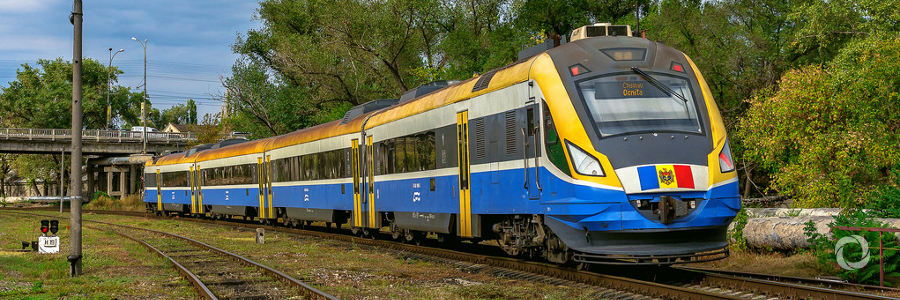Moldova’s state railway company plans to loans from the European Bank for Reconstruction and Development (EBRD) and European Investment Bank (EIB) for a railway rehabilitation project covering about 250km kilometers of the Bender-Basarabeasca-Etulia-Giurgiulesti route.
The route starts from the rebel Transnistria region close to its capital Tiraspol and to the border with Ukraine, and stretches westward to Moldova’s sole Danube port Giurgiulesti on the border with Romania. Transnistria’s foreign trade is already oriented toward the European Union and the modern route would provide the separatist region, which inherited most of Moldova’s industrial assets built during the USSR period, better trade opportunities.
According to Moldova Railways Company (CFM), the tender for this railway infrastructure rehabilitation is scheduled to be launched in the third quarter of 2018. The EBRD stated that the tender for the contracts is due to start on August 15, and the proposed project has an estimated total cost of €100mn.
Until then, the CFM has invited interested and qualified companies to attend a project presentation scheduled for June 20, at the headquarters of the finance ministry, after which a visit will be organised to the Chisinau-Bender-Basarabeasca-Etulia route.
Moldova contracted a €105mn loan from the EBRD and EIB in 2014. The first part of the loan contract provides for the purchase of 11 electric diesel locomotives suitable for both passenger and freight transport, plus related maintenance equipment. The auction was announced at the beginning of 2017, but it has not yet been announced who will deliver the locomotives.
The second part of the contract concerns the rehabilitation of the railway infrastructure. Rehabilitation works will be concentrated on the Bender-Chisinau-Ungheni-Balti-Ocnita and Bender-Basarabeasca-Etulia-Giurgiulesti corridors.
CFM is in a difficult situation. Out of its 139 existing locomotives, 134 have exceeded their standard depreciation period. At the same time, more than 25% of the railway infrastructure can no longer be exploited and requires capital repair, and over five years the circulation on more than half of the railways will be suspended if action is not taken.
In the last five to six years, the state-owned company accumulated significant losses of MDL1bn (€50mn). Losses have increased in recent years due to the decrease in passenger numbers, especially for international transport. The company needs around €300mn to restore to normal operations.
Original source: INTELLINEWS
Published on 11 June 2018

